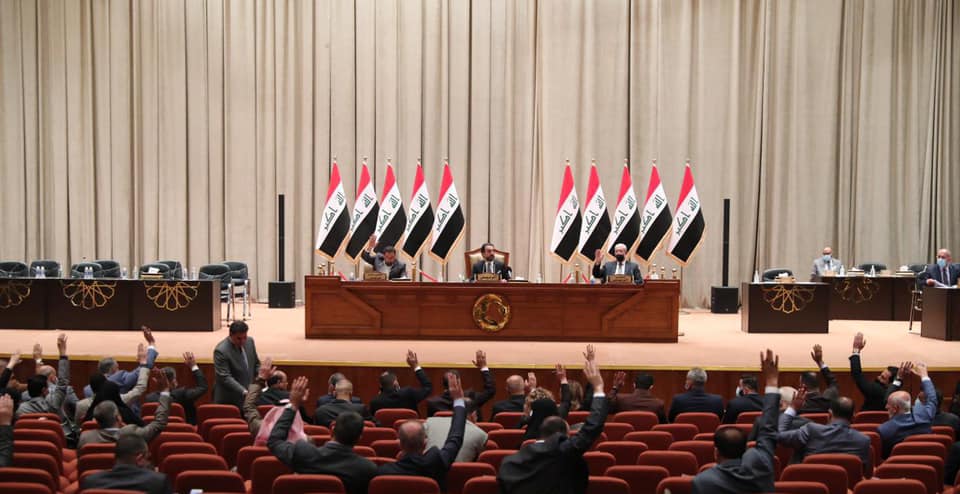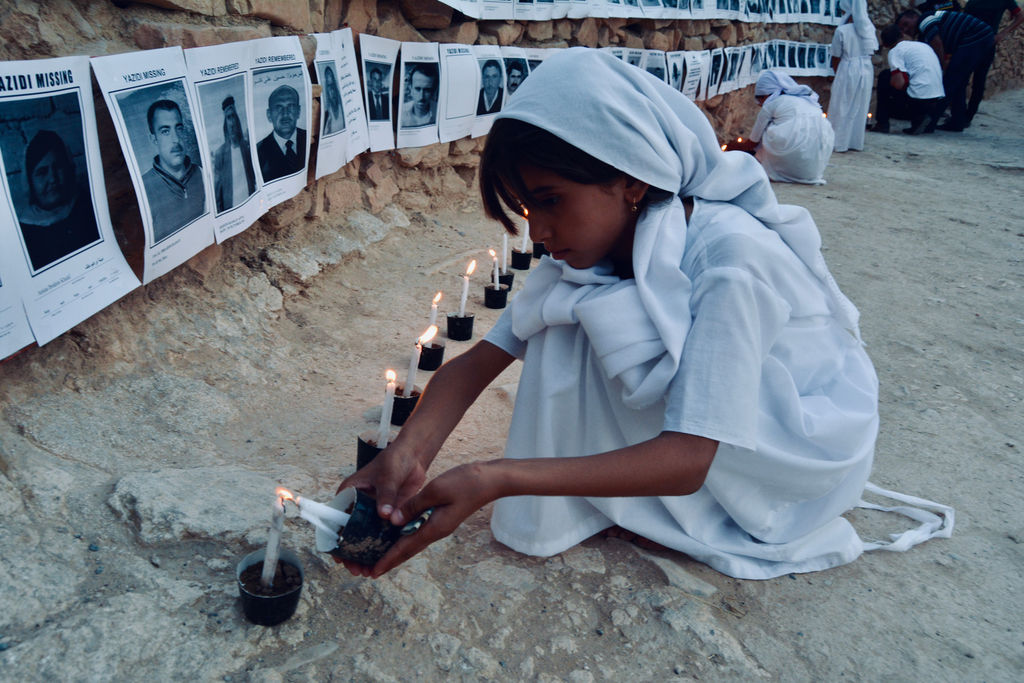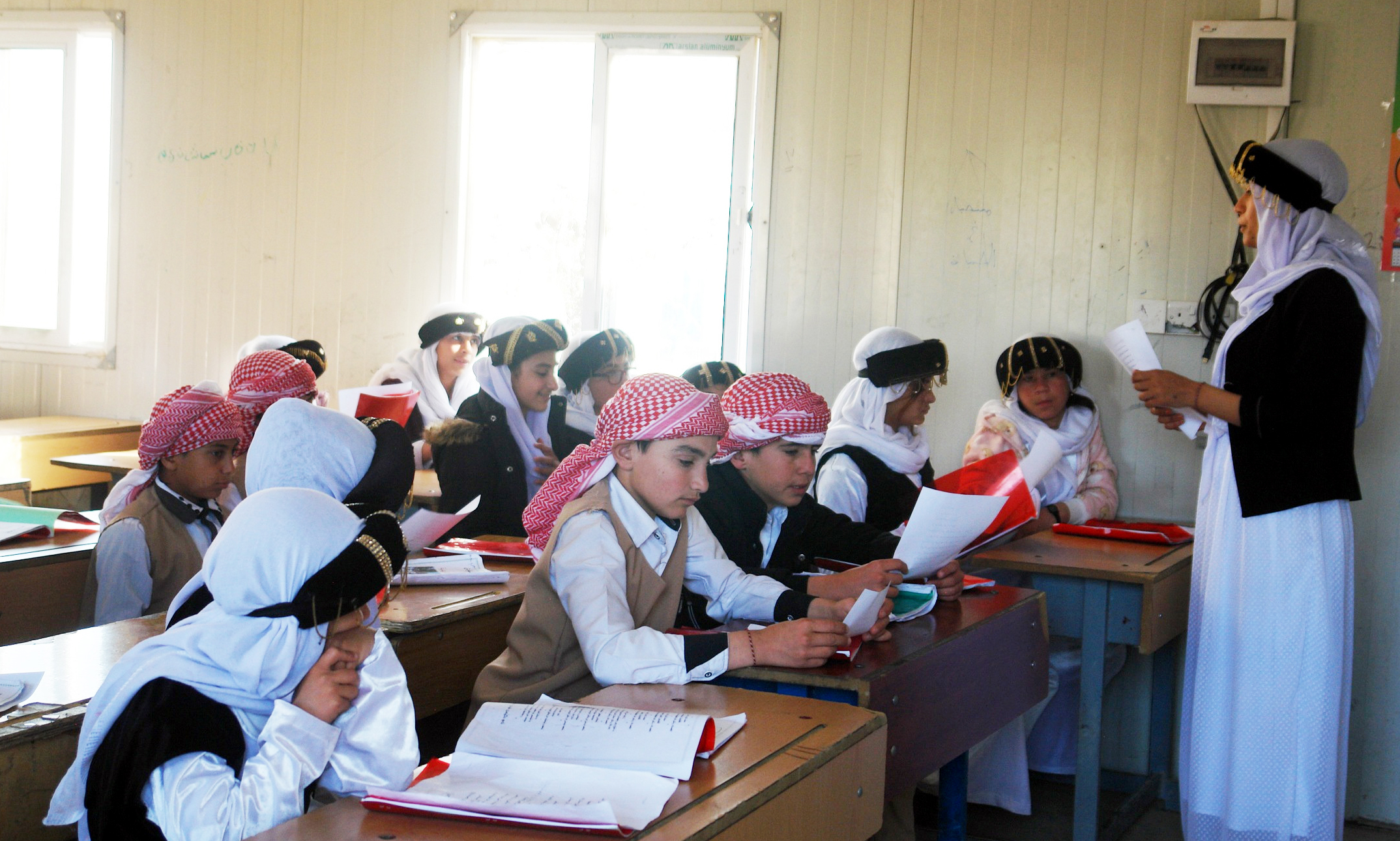Iraqi parliament has skipped two articles in the draft of the Yazidi female survivor’s law it has passed on Monday upon request of Ezidi supreme religious council, outlined to address the destiny of children born by Ezidi female captives forced to marry militants of so-called Islamic State in Iraqi and Syria ISIS.
The Iraqi parliament adopted the Law on Ezidi Female Survivors on March 1st, referredto the by the Iraqi President Barham Salih two years ago. The passage of the law represents a watershed moment in efforts to address the legacy of ISIL crimes against Yazidis and other minority groups, as it officially recognizes acts of genocide against them and establishes a framework for the provision of financial support and other forms of redress to survivors.
The law of reparation was basically drafted to address more sensitive issues, such as dealing with children who were the results of IS rape through a special instance court to be formed accordingly in Shingal, later skipped based on calls by Ezidi spiritual leaders.
“The article and items related to Daesh children was unanimously skipped by MPs upon request of prince of Ezidis and the Ezidi Spiritual Council,” Hussein Hassan Narmo, an Ezidi member of Iraqi parliament told KirkukNow.
“The article and items related to Daesh children was unanimously skipped by MPs upon request of prince of Ezidis and the Ezidi Spiritual Council,”
The Ezidi administration institution is made up of the Ezidi Spiritual Council, prince of Ezidis (Mir) who is the head of the spiritual council (leader of the community), Baba-Shékh(the key religious figure), Minister Sheikh, and head of the seniors. They unanimously form the council and take the decisions.
Narmo is please the survivors are entitled to receive a monthly salary double of the minimum pension of a state employee. “One of the vital articles is that they will receive one million IQD (about $700) till death.”
Those law provides those who survived the IS massacre with financial support, health care, work opportunities, education, rehabilitation, and reconstruction in their hometowns. With the establishment of a special governmental department for Yazidi affairs, the bill would represent the first recognition in Iraqi history of the minority as a distinct group.

Iraqi parliament session on March 1st, 2021 about Ezidi survivors' law. Photo by Iraqi parliament media.
Iraqi house of representatives is seeking an alternative to sort out the issue of children born for a female Ezidi captive and an ISIS militant, basically rejected the ethno-religious community. Mothers unwilling to give up their kids, could not reunite into their communities and still living in shelters by NGOs advocating for women rights.
“There was a proposal to draft a special law allows the mothers to register the kids under their names,” Narmo said.
“There was a proposal to draft a special law allows the mothers to register the kids under their names,” Narmo said.
Ezidis are an ethno-religious minority over half a million people, mostly residing in Shingal, in northern Iraqi province of Nineveh. The militants of Daesh extremist group in 2014 attacked their communities, killing thousands of men and taking thousands of women and children, in an atrocity the U.N. said amounted to genocide.
IS used the women and girls as sex slaves. Tens of thousands of Ezidis are still living in Internally Displaced People IDP camps in Iraqi northern province of Duhok. Over 80 mass graves and tens of individual graves were found up today in Ezidi dominant towns in Nineveh Northern Province.
“We have demanded to delete the article about Deash kids because we were against that and we thank the MPs for deleting the article. We totally agree with the law,” Jawhar Ali Bag, vice prince of the Ezidis said.

An Ezidi kid in the anniversary of genocide by Daesh in Nineveh. Photo by Yazda Organization.
Mir Hazim Tahsin Bag, prince of Ezidis and then spiritual leader, ordered to reunite all Ezidi female survivors and their children on April 24, 2019 but the order has been widely protested by the Ezidi community. “The order does not refer to children of sexual abuse of Ezidi girls and women by IS militants,” three days later, the Prince elaborated in letter.
“We don’t approve the return of those kids that's why we asked to delete it from the law and it was deleted," said Hala Safil, an Ezidi girl survivor whom participated in sessions for drafting and reviewing the law.
"It is true that nothing can compensate us for the pain and oppression we suffered at the hands of Daesh because we lost everything yet still passing the law is a positive step and we felt that we are a special and important component of Iraqi society," she added.
"It is true that nothing can compensate us for the pain and oppression we suffered at the hands of Daesh because we lost everything yet still passing the law is a positive step and we felt that we are a special and important component of Iraqi society,"
Parents and three brothers of Safil are still missing. She lives with four sisters in Bersiv IDP camp in Zakho district of Duhok Northern Province, home to 15 camps for thousands of Ezidi IDPs who fear return to hometown for security and economic reasons.
Safil is eagerly waiting for the articles of the law to be implemented.
IS fighters swept Shingal district in August 2014. About 6,500 Ezidis were held captive yet only 3500 were freed and still 2,700 are missing, Kurdistan regional government KRG data shows.
Nadia Murad, Ezidi survivor, Nobel Peace Prize Laureate and advocate for survivors of sexual violence, tweeted on Monday “Today's passage of Iraq’s Yazidi Survivors Bill is an important first step in acknowledging the gender-based trauma of sexual violence & need for tangible redress.”
“Implementation of the law will need to be focused comprehensively supporting & sustainably reintegrating survivors,” she adds.

Nadia Murad discusses the problems of Ezidi community with Iraqi president last February in Baghdad particularly passage of the Ezidi female survivor law. Photo by Iraqi Presidency media.
The law identifies crimes against the women survivors as genocide locally and internationally and pledged to file lawsuits against perpetrators. In 2019, Nadia Murad urged the world to hold IS extremists accountable for their crimes against different communities, specifically atrocities against Yazidis and Christians. Murad called for the creation of tribunals similar to the Nuremberg tribunals after World War II that brought Nazi war criminals to justice.
The Iraqi law is to commemorate ISIS atrocities against the Eizidis on August 3rd.
The Ezidi community hopes the Iraqi government can bring home the missing people and to retrieve the bodies of the dead and give them a proper burial.
“The ratification of the Yezidi Female Survivors law is a vital step towards justice and equal citizenship. The Iraqi Government is keen on implementing the law, provide a dignified living for all female survivors, work on freeing those in captivity, and support liberated areas,” Iraqi Prime minister Mustafa al-Kadhimi said on Monday.





